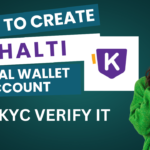With the rapid digital transformation in Nepal, businesses are increasingly seeking to integrate payment gateways into their websites, mobile applications, and other online platforms. Payment gateways allow businesses to accept digital payments from customers, ensuring smooth, secure, and efficient financial transactions. In this article, we explore some of the prominent payment gateways in Nepal, their API charges, and why businesses are adopting them to cater to the growing demand for digital payments.
Payment Gateway APIs and Their Charges in Nepal
Here is a breakdown of the API charges for some of the major payment gateways in Nepal:
- Fonepay: Rs. 25,000
- Esewa: Rs. 25,000
- Connect IPS: Free
- Khalti: Rs. 20,000
- IME Pay: Free
- Prabhu Pay: Free
- MyPay: Free
To obtain API access for any of these payment gateways, businesses must be legally registered in Nepal. Individual users cannot obtain API access.
While some payment gateways, like Connect IPS, IME Pay, Prabhu Pay, and MyPay, do not charge for API integration, others like Fonepay, Esewa, and Khalti have upfront costs. Additionally, businesses need to consider the transaction charges associated with using these services, which typically range between 1-2% of the transaction amount and, in some cases, can go as high as 4%. Certain payment gateways may also have recurring annual charges or other fees, making it essential to thoroughly research and consult with each provider before proceeding with API integration.
Why Payment Gateway API Integration is Crucial for Businesses
Payment gateways are essential for businesses in today’s digital age for several reasons:
- Secure Transactions: Payment gateways use encryption and other security measures to protect sensitive customer information, ensuring that transactions are safe from fraud or unauthorized access.
- Convenience: With an integrated payment gateway, businesses can offer a seamless payment experience to their customers. Customers can make payments using various methods, such as mobile wallets, bank transfers, and cards, without leaving the business’s website or app.
- Wider Customer Reach: Offering multiple payment options through a gateway allows businesses to cater to a broader audience, including customers who prefer mobile wallets, credit cards, or direct bank transfers.
- Real-Time Processing: Payment gateways enable real-time transaction processing, ensuring that businesses receive payments promptly, improving cash flow and operational efficiency.
Why Mobile Wallets are Becoming Popular in Nepal
Mobile wallets have gained tremendous popularity in Nepal over the past few years. Here’s why:
- Ease of Use: Mobile wallets allow users to make payments, transfer money, and manage finances directly from their smartphones. This convenience has led to widespread adoption, especially among younger generations.
- Growing Internet Penetration: With increasing access to smartphones and the internet in both urban and rural areas, mobile wallets offer an easy solution for those looking to move away from traditional banking methods.
- Inclusive Financial Services: Mobile wallets have made it easier for unbanked and underbanked populations to access financial services, fostering greater financial inclusion.
- Fast and Efficient Transactions: Mobile wallets offer instant transaction processing, whether it’s paying utility bills, transferring money to a friend, or making online purchases.
- Reward Programs: Many mobile wallets offer loyalty programs, cashback offers, and discounts, further encouraging their use among consumers.
Integration of Payment Gateways with Websites and Mobile Apps
In Nepal, businesses are increasingly integrating payment gateways into their online platforms to keep pace with the digital shift. Whether it’s e-commerce, subscription services, or digital marketplaces, seamless payment processing is essential for enhancing the user experience and building customer trust.
Website Integration: By integrating payment gateways into websites, businesses can offer a smooth checkout experience, allowing customers to pay without leaving the platform. Payment gateways often provide plugins or APIs that make integration with popular platforms like WordPress, Shopify, and Magento straightforward.
Mobile App Integration: For businesses with mobile apps, integrating a payment gateway is essential for enabling in-app purchases or subscriptions. This enhances the customer experience by allowing users to complete transactions within the app without any friction.
Both these integrations simplify the payment process, encourage customer retention, and ultimately drive more sales for businesses.
The Need for Free API Access and Transparency
While we acknowledge the importance of payment gateways in Nepal, it’s time to request these providers to make their APIs free or more accessible to individuals and small-scale projects. Digital payment systems are essential tools in today’s economy, and many entrepreneurs and developers are forced to give up on their projects—not only due to the high API charges but also because access is limited to registered businesses.
If we look at global providers such as PayPal, Stripe, and Square, they allow individuals or solo proprietors to access their services without requiring formal business registration. This flexibility encourages innovation and gives youth a chance to develop their ideas without being stifled by bureaucratic obstacles.
We understand that these payment providers must comply with Nepal’s financial regulations. However, introducing more flexible options for individuals with limits on transaction volumes or other parameters could empower the next generation of tech-savvy entrepreneurs. This would foster growth in the digital economy, especially for those working on innovative projects that need easy access to payment systems.
In fact, a Nepali Reddit user shared their experience of how they had to abandon a project due to these issues.
This story is not unique—many young developers face similar challenges, which could be avoided if payment gateways offered a tiered or flexible approach to API access.
Moreover, we strongly urge these providers to be transparent about their transaction fees and other costs. Instead of requiring users to email each provider for details, this information should be easily available on their websites. Transparency will allow businesses and developers to make informed decisions and avoid unexpected charges later.
Conclusion
Payment gateway APIs are indispensable for businesses in Nepal that want to accept digital payments and cater to the growing demand for cashless transactions. Whether through popular mobile wallets or bank transfers, integrating these gateways can significantly boost operational efficiency and customer satisfaction. While some gateways charge for API access and transactions, the convenience, security, and expanded reach they provide make them a valuable investment for businesses of all sizes.
As mobile wallets continue to rise in popularity, more businesses are adopting these technologies to stay competitive in the evolving digital landscape of Nepal.
FAQ:
1. What are the charges for using payment gateway APIs in Nepal?
Fonepay and eSewa charge Rs. 25,000, Khalti charges Rs. 20,000, while others like Connect IPS, IME Pay, Prabhu Pay, and MyPay offer free APIs. Transaction fees usually range from 1% to 4%.
2. Can individuals access Nepali payment gateway APIs?
No, you need to have a registered business in Nepal to access these APIs. Individuals are currently not eligible.
3. Why are payment gateway APIs important for businesses?
Payment gateway APIs enable businesses to process online transactions securely and efficiently, allowing customers to make digital payments through mobile wallets or other methods.
4. Are there any recurring charges for using these payment gateways?
Yes, some gateways may have recurring yearly charges or transaction fees. It’s best to consult with the respective provider for details.
5. Why is there a call for free API access in Nepal?
Many developers and entrepreneurs struggle with high API charges and restrictions to business entities. Offering free or more flexible access could encourage innovation and support youth-driven projects in Nepal.
6. Are transaction fees for these gateways transparent?
Unfortunately, many payment gateways do not provide detailed transaction charges upfront on their websites. Users often have to contact them directly to get this information.






